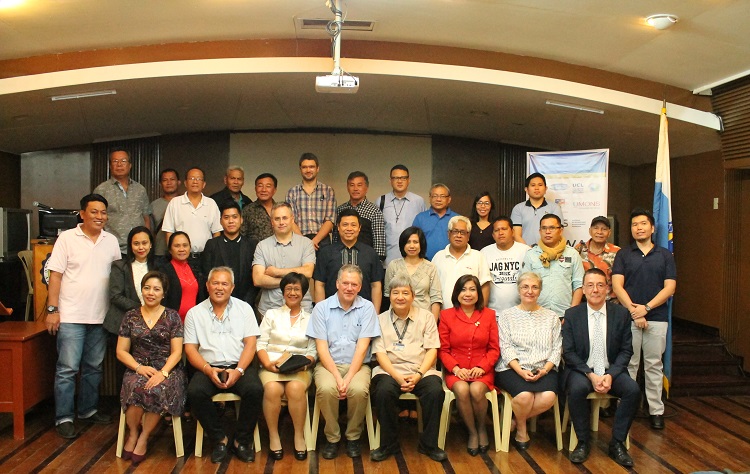
BIMWAM PROJECT. Xavier University - Ateneo de Cagayan, University of St La Salle, Université de Namur, Catholique Université de Louvain, and Université de Mons of Belgium have joined forces in the research project, “Building up an Integrated Methodology for Water Resources Assessment and Management in Urban Coastal Areas” or BIMWAM. Supplied photo.
By Stephen J Pedroza
Xavier University - Ateneo de Cagayan, University of St La Salle, Université de Namur, Catholique Université de Louvain, and Université de Mons of Belgium have joined forces in the research project, “Building up an Integrated Methodology for Water Resources Assessment and Management in Urban Coastal Areas” or BIMWAM.
The project was officially launched on Wednesday, January 24, at Xavier Ateneo, attended by scientists from the Philippine and Belgian universities, leaders of water cooperatives of Misamis Oriental, and representatives from local government units and public agencies.
BIMWAM aims to develop a methodology to assess the water resources, potential, and quality in urban coastal areas, particularly in the municipalities of Opol and Medina (both are parts of the Northern Mindanao region), by reinforcing the local scientific capacities and expertise.
“Here at Xavier Ateneo, we are grateful for this partnership and for coming together to collaborate on this important project,” Xavier Ateneo president Fr Roberto C Yap SJ said in his message.
He added: “We do not just do research for research's sake. We are a university in a developing country; therefore, what we do should have social relevance and impact. BIMWAM is in line with our mission as a Jesuit university, wherein this will address local issues on our water resources. It’s important that we have the solid science, analysis, and rigorous work to come up with a methodology to be applied to solve the problems that affect our communities.”
Fr Roberto Ezequiel Rivera SJ, former director of XU - Southeast Asia Rural Social Leadership Institute (SEARSOLIN) and now the president of Ateneo de Naga University, agreed with Yap.
"The BIMWAM project cuts across [the university’s] thematic research areas. Water is one of the crucial issues of the 21st century," Rivera said, “The impact is already being felt in Mindanao, such as during typhoons Sendong and Vinta.”
Besides the leaders of the universities, representatives from the Medina Rural Waterworks and Sanitation Cooperative (MERWASCO), Cagayan de Oro City Mayor Oscar Moreno, and Embassy of Kingdom of Belgium (Manila) counsellor Xavier LeBlanc were present at the signing of the memorandum of agreement.
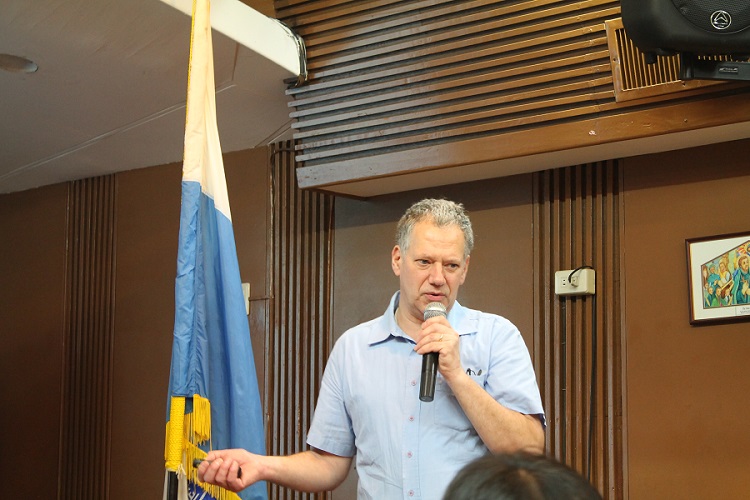
Dr Vincent Hallet, BIMWAM Project Coordinator for the North and Professor at the Départment de Géologie of Université de Namur
Water resources and quality
One of the project’s targets is to encourage water stakeholders (water distributor coops, LGUs, and communities) to improve their strategies and make sound policies on sustainable water management through the implementation of a dedicated decision-making tool.
Dr Vincent Hallet of Université de Namur, in his presentation, shared the scientific side of the project, including Geographic Information System (GIS)-generated maps and instruments to be used to measure water quality of groundwater and intrusion of saltwater, among other factors.
Hallet said that due to the high probability of the intrusion of salt water, it is harder to access potable groundwater in coastal areas. One of the challenges of this project is to locate and map out water sources in the two municipalities and determine their quality.
He added that BIMWAM could serve as a prototype of a standardized methodology for water resource assessment that could be replicated in Cagayan de Oro and other coastal communities in Mindanao.
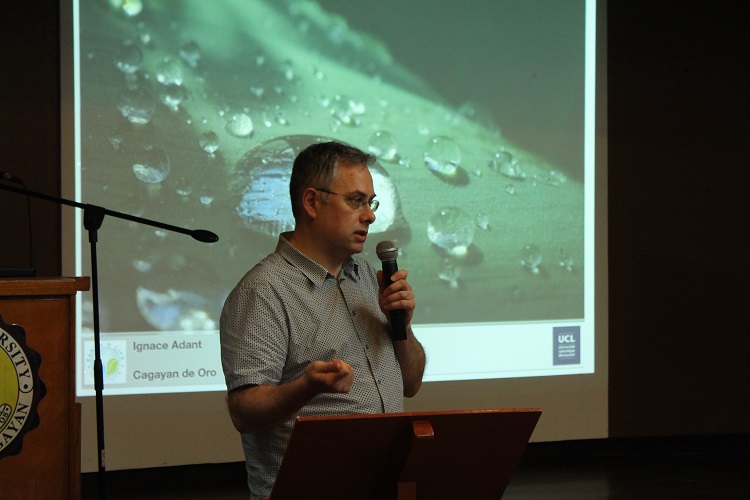
Dr Ignace Adant, Senior Researcher at the Earth and Life Institute of the Université Catholique de Louvain
Change in behavior
For Dr Ignace Adant, senior researcher of the Earth and Life Institute of Université Catholique de Louvain, to achieve sustainable water management there has to be a behavioral change among the stakeholders.
He said that in the Philippines, although water resources are abundant (per capita water availability is twice as much as the rest of Asia), water needs are not met due to the inadequate support for service providers and the lack of sector planning and reliable information, to name a few of the problems he identified.
“Unsafe water causes economic losses, diarrheal diseases, malnutrition…,” Adant added during his presentation on the socio-economic implications of the monopolization of water supply and price.
For Adant, this is where BIMWAM comes in in the picture of local development. He said there has to be a scientific knowledge (layers of information) and integrated impact assessment methodology to support policymaking on water management.
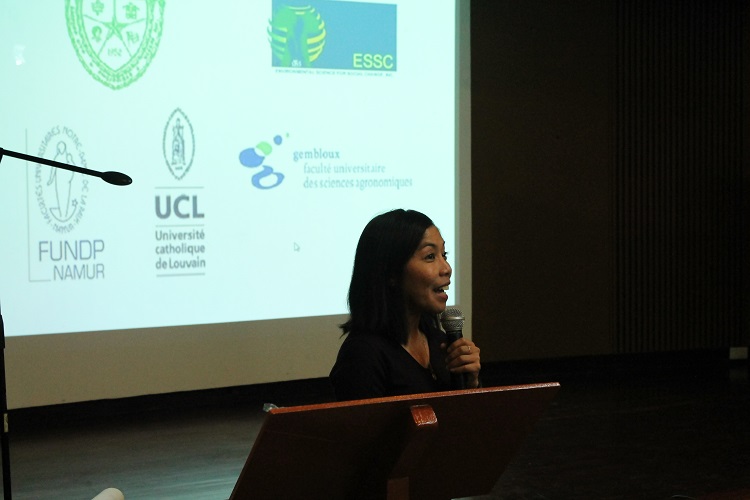
Dr Ana Rosa Carmona, Professor at the University of St La Salle
The Bacolod experience
Xavier Ateneo can also learn from the successful undertaking of a similar project funded by the Académie de Recherche et d'enseignement or ARES (formerly the Commission of Universities for Development or CUD) in Bacolod City.
Dr Ana Rosa Carmona of USLS, whose master of science degree was under the CUD scholarship, imparted their research experiences and lessons in conducting water resources mapping in the capital city of the province of Negros Occidental.
For her, it is necessary to take a look at the present water situation in the area and to conduct studies on how barangays (or puroks) utilize (supply and demand) and manage their water resources.
“Critical to this is the need for good information that describes the condition, trend, spatial location, and variability of water resources,” she said.
Carmona’s team, at the end of their project, was able to share a Water Resources Inventory and Mapping to the local governments across their research area to guide community stakeholders in their future water management decisions.
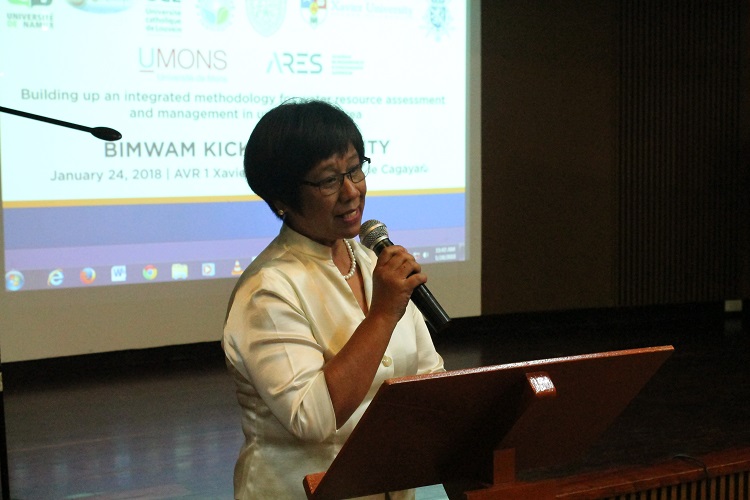
Dr Guadalupe Calalang, BIMWAM Project Coordinator for the South and Professor at the Agricultural Engineering Department of Xavier Ateneo
For Mindanao
The BIMWAM project with XU as the local lead partner is also funded by the Académie de Recherche et d'enseignement (ARES) and will run for a period of five years.
The project also features a call for applications for two PhD scholarships (PhD in Hydrogeology and PhD in Economics) to be conferred by the Belgian universities.
Dr Guadalupe Calalang, BIMWAM Project Coordinator for the South and Professor at the Agricultural Engineering Department of Xavier Ateneo, said that the panel has interviewed six PhD applicants (as of press time).
Calalang, in her message, also expressed her gratitude to the partners of the project, which she described as a “noble cause for the sustainable water resource development and management in Mindanao.”∎
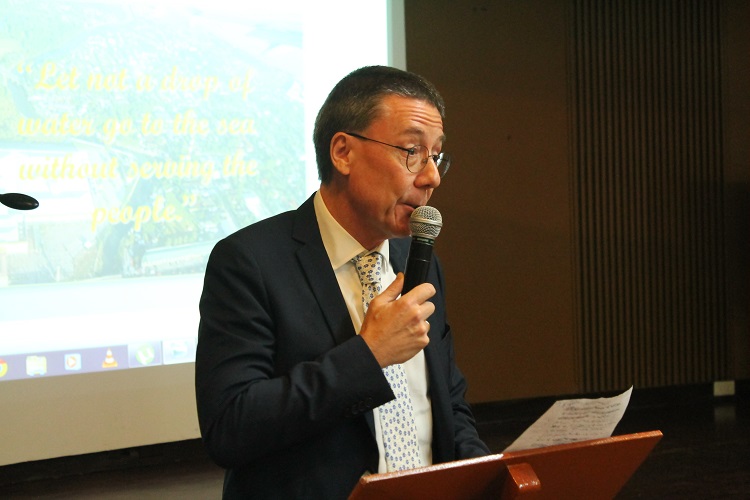
Mr Xavier LeBlanc, Counsellor at the Embassy of the Kingdom of Belgium (Manila)
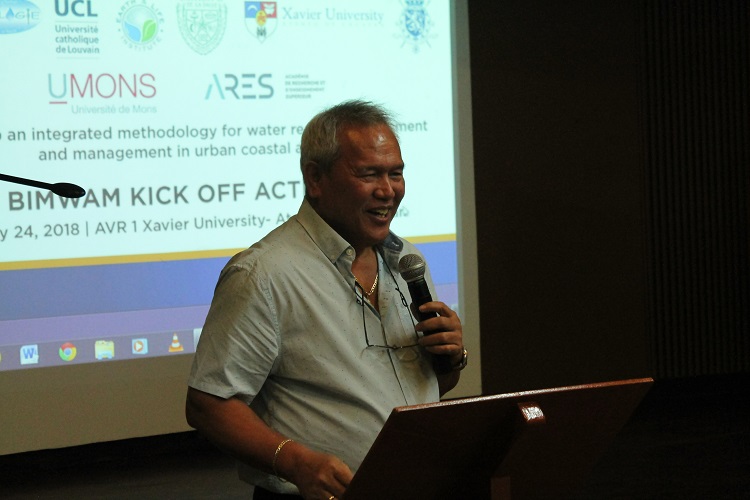
Cagayan de Oro City Mayor Oscar Moreno
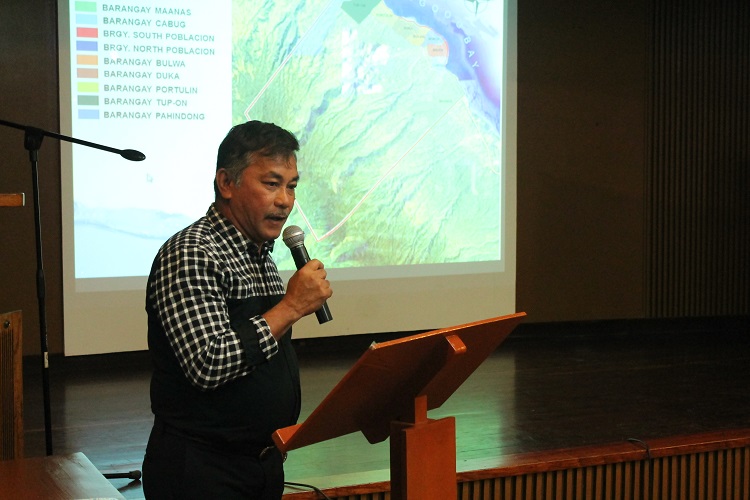
Engr Isagani Barcelona, General Manager of Medina Rural Waterworks and Sanitation Cooperative (MERWASCO)
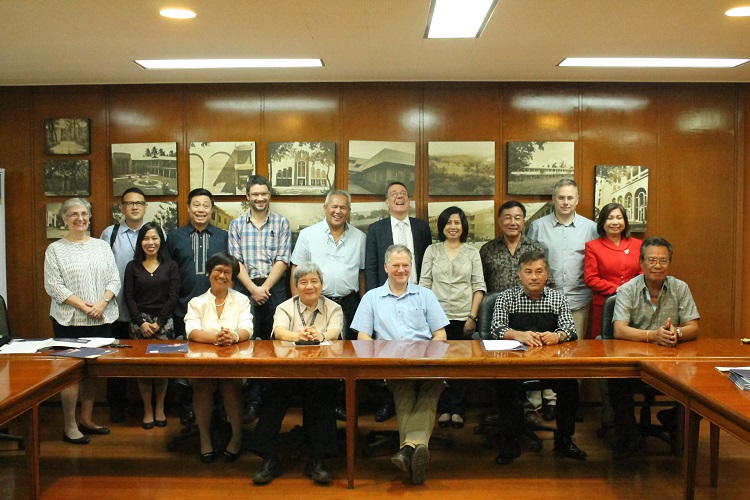
BIMWAM PROJECT. Xavier University - Ateneo de Cagayan, University of St La Salle, Université de Namur, Catholique Université de Louvain, and Université de Mons of Belgium have joined forces in the research project, “Building up an Integrated Methodology for Water Resources Assessment and Management in Urban Coastal Areas” or BIMWAM. Supplied photo.
